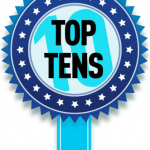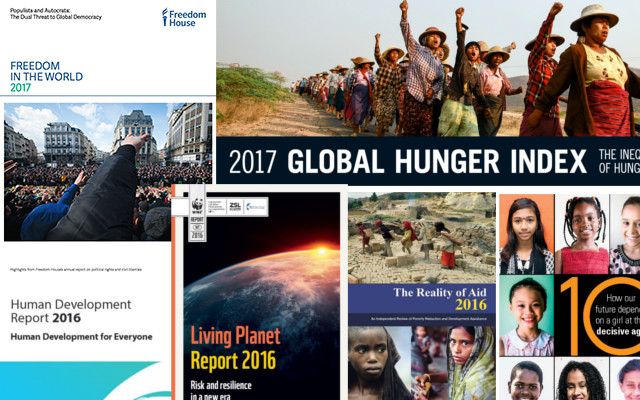The results are in for the most shared and read blogs on developmenteducation.ie over the course of the last year. As expected, they present a wide snapshot of issues that interested and engaged readers.
 As the scale of multiple global challenges converge on presidential terms, conflict zones, the environment and humanitarian emergencies in the Mediterranean, the most popular blogs of the year reflect the topics that were of interest to readers and educators.
As the scale of multiple global challenges converge on presidential terms, conflict zones, the environment and humanitarian emergencies in the Mediterranean, the most popular blogs of the year reflect the topics that were of interest to readers and educators.
Navigating big issues such as activism and change, the latest from international reports and the content and opportunities of the Sustainable Development Goals isn’t automatically ‘easy’. It takes time, some ‘hard thinking’ and working through how you might take a stand or respond to live issues as they are happening. 2017, then, was not short on issues to draw on, access and respond to.
As part of a developmenteducation.ie opendata initiative, we are publishing an annual trends report. This blogs round-up forms the first part, which will be online on Thursday. The trends report will include top 10 countries and counties in Ireland that used the website as well as popular pages, resources and tweets from the year.
Here’s the list of top blogs of the year from 2017.
………………………………………………………………
- 5 summer reads in development education. Colm Regan reviews 5 books as part of his summer reading with recommendations for anyone interested in development and global learning.
- Climate change and I: taking it personally. Transition Year student Jack Lawlor from Presentation College Bray, reflects on climate science, climate justice and leading a local Green-Schools campaign in his school, the Energy Bandits.
- Hygge and happiness: social justice and the Danes. On the frontlines of the Danish ‘Hygge’ phenomenon, Grace McManus argues that consuming our way into happiness isn’t the only way to acquiring happiness.
- Letter from Lesbos. During the month of August barrister Eoin Cannon volunteered with an organisation based on the island of Lesbos that gives legal advice to people seeking refugee status. Eoin reflects on a flavour of the many different issues faced by both refugees and islanders in coping with a crisis which is now being played out far away from the gaze of most of Europe.
- Exploring Change – a review of How Change Happens by Duncan Green. Duncan Green’s How Change Happens is a book of, and for our times, and includes much food for thought (and debate) for development educators, argue Tony Daly and Colm Regan.
- Eat, sleep, protest, repeat – 5 ways teenagers can realise their inner activist. That’s the thing about us teenagers, argues Tara Hoskin, we have a way of sneaking in places you’d never expect!
- 5 videos on the Sustainable Development Goals worth a view (and a very useful TED talk) by Colm Regan
- Murder in Malta: reflections on morality, markets and Maltese society. In the wake of the assassination of Malta’s most prominent investigative reporter, Daphne Caruana Galizia, we need to understand and address the underlying and deep-seated causes of Malta’s current predicament, says Omar Grech.
- What does peace look like? 21st of September is International Day of Peace. Toni Pyke (and her six year old son) reflect on what peace looks like.
- Eamonn Casey – some personal reflections. Eamonn Casey was a huge influence, agenda setter and reference point in Ireland during a vigorous contest between those who wanted a more conservative, formal and structured approach and those who highlighted human rights, justice, struggle and conflict between individuals, organisations, state and church institutions, writes Colm Regan
- Through a Japanese lens by Yukiko Suzuki (joint winner of the TCD/developmenteducation.ie blog series competition) and Transition now, before we swallow the Earth by Tony Daly on Earth Overshoot Day 2017
- What makes people good? In a highly diverse, multi-cultural, post-truth world, John Dornan argues there is even more need to understand the origins of different attitudes and perspectives and that religious education deserves its place in schools.
- Desperately seeking the truth – a guide. So what are ‘fake’ or ‘alternative’ ‘truths’ (and don’t forget “post-truths”)? Much as I try, I am unable to switch off from the social and mainstream media storm surrounding ‘POTUS’, writes Toni Pyke.
- GDP – Good Development Policies or Grand Delusional Policies? Joint winner of the 2017 Trinity College Dublin/developmenteducation.ie development issues blog series, Terence Mullally dons his philosophy hat to explore what ‘development’ means.
- The importance of Creativity for Change – and how to get involved. Jessica Carson, Co-ordinator of Creativity & Change, explores the importance of using creativity for change through sharing her journey and understanding of the relationship between creativity, learning and global citizenship.

